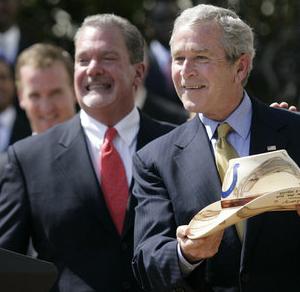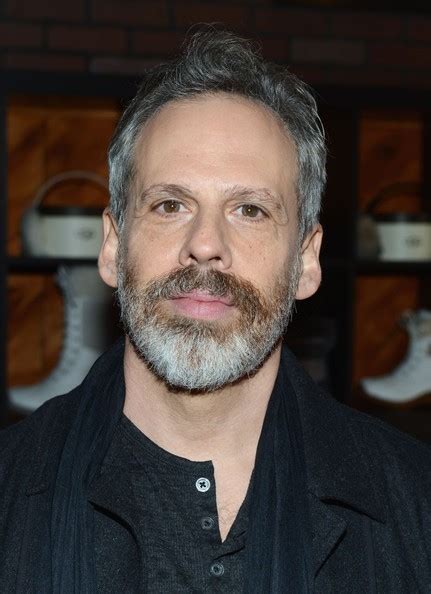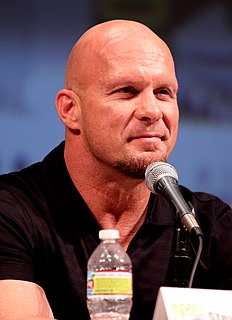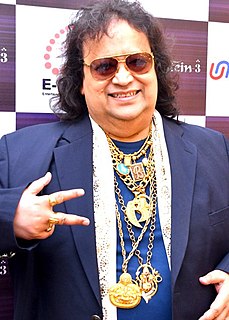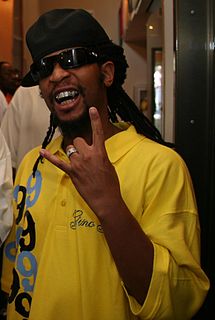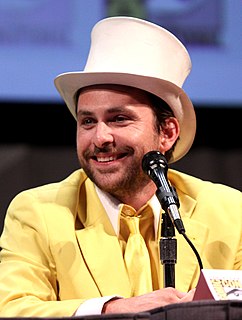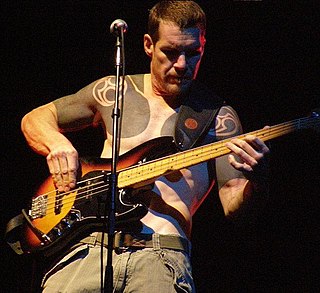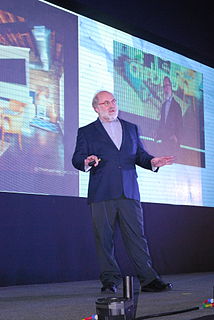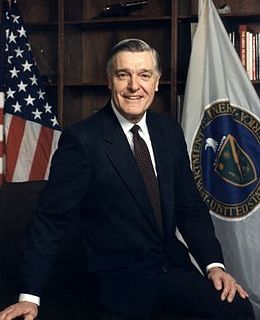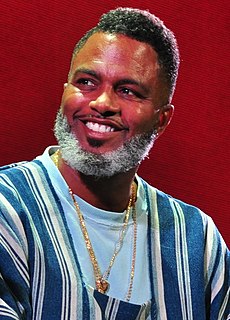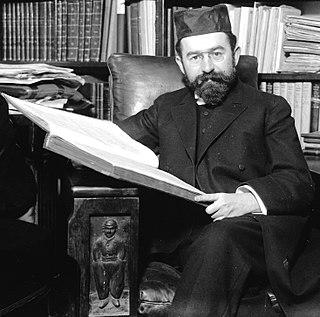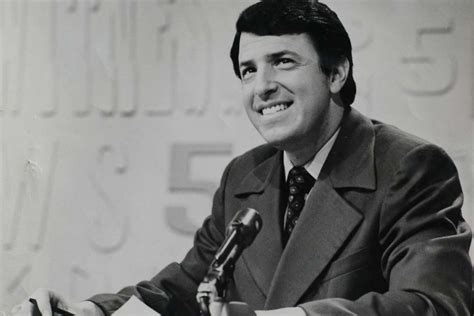Top 1200 Era Quotes & Sayings - Page 2
Explore popular Era quotes.
Last updated on April 16, 2025.
I think the Trump thing is particularly egregious, and I think he's as much a product of the GOP lie machine in the era of Roger Ailes as he is of television. And also, of the Twitter era. Of the everything-is-as-reductive-as-it-can-be. To me, the most telling thing is we have a man who cannot complete a sentence. Certainly could never get to 140 characters, or past it. He thinks in tiny little bursts - the way he tweets.
Computer science only indicates the retrospective omnipotence of our technologies. In other words, an infinite capacity to process data (but only data -- i.e. the already given) and in no sense a new vision. With that science, we are entering an era of exhaustivity, which is also an era of exhaustion.
I think that we are right now - the society - is living in the Facebook era and the political system is still in the 19th century prior to the Industrial era. Why for God's sake do you need to be socially liberal and economically conservative? Or to be economically market-oriented but at the same time socially, extremely conservative? Why can't you be free in both dimensions?
In a perfect world, you make a seamless transition from one great era to the next, but that rarely happens. I've studied these things: how do you go from the Aikman-Irvin-Smith Cowboys to the next era? I'm all for continuity. I wish we could have done it that way with Bill Polian, Jim Caldwell, Peyton.
I worry more about the marketing that's taken hold since the 70s. The Jazz era, the Swing era, those were huge. Entire decades were named for music. In the 1940s - after World War II - changes in taxation, ballrooms closing, people moving to the suburbs, and the onset of target marketing and the confusion of commerce with art caused some things to happen as a result that have taken us away from jazz and what jazz offers us.
At Carnegie Hall the Preservation Hall Jazz Band showed how easily it could hop from era to era. It could work like a rhythm-and-blues horn section or a tightly arranged little big band if need be, but it could also switch back into the polyphonic glories of vintage New Orleans jazz, in which nearly every instrument seems to improvise around the tune at the same time.
The era I love most is the Federal period, just after the Revolution and the formation of the United States. The birth of America as a nation coincided with the Romantic era and I've always been thoroughly into the Romantics and I've always been thoroughly into America, particularly at the time when it was a brand new idea, when it was something brand new in the world. It was a very exciting time in the world because of the birth of America
Humanity will continue, but in a different way. Material structures will change. From this we will have the opportunity to be more human. We are living in the most important era of the Mayan calendars and prophecies. All the prophecies of the world, all the traditions are converging now. There is no time for games. The spiritual ideal of this era is action.
I'm interested in history because it's a discipline that requires a lot of effort from the imagination. You need to put in a lot of imaginative effort to figure out how people lived in an era that is not yours. And in that understanding of people from a different era, I feel, is an important gateway into humanity. Because you understand human behavior. In order to understand humanity, history is important.
If it is true to say of the lazy that they kill time, then it is greatly to be feared that an era which sees its salvation in public opinion, this is to say private laziness, is a time that really will be killed: I mean that it will be struck out of the history of the true liberation of life. How reluctant later generations will be to have anything to do with the relics of an era ruled, not by living men, but by pseudo-men dominated by public opinion.
For hundreds of millions of people, the fall of the Berlin Wall was a great triumph: The moment marked the end of hated dictatorships and the beginning of a better era. But for the KGB officers stationed in Dresden, the political revolutions of 1989 marked the end of their empire and the beginning of an era of humiliation.
Whatever we do must be in accord with human nature. We cannot drive people; we must direct their development. The general policy of the past has been to drive; but the era of force must give way to the era of knowledge, and the policy of the future will be to teach and lead, to the advantage of all concerned.
We stand today at a unique and extraordinary moment. The crisis in the Persian Gulf , as grave as it is, also offers a rare opportunity to move toward an historic period of cooperation. Out of these troubled times, our fifth objective - a new world order - can emerge: a new era - freer from the threat of terror, stronger in the pursuit of justice, and more secure in the quest for peace. An era in which the nations of the world, East and West, North and South, can prosper and live in harmony.
I think the "dawning of a new era" sounds a bit pretentious, and to me it's simply a step closer to my roots, and thus yes - I do feel liberated by this. I know many dislike this move, and I suspect that it is not really the dawning of a new era, but rather a move to a style which sells less records
We came from where people don't look like they have money anyway. We came up in an era where the dudes who had all of the money looked regular, the same way you see billionaires in some run down shoes or old jeans. You see how Warren Buffett, Bill Gates and those dudes dress. Even in our era, the dudes with the money weren't flashy.
The religious conflicts of the Reformation era were never simply and only about religion, because religion during this era as in the Middle Ages that preceded it, informed and was meant to inform every domain of life. Violence involving religion and touching other areas of life took many forms: from the Protestant destruction of Catholic religious art and objects in iconoclasm, to Catholic executions of Protestants who refused to renounce their views, to major destructive conflicts such as the French Wars of Religion and the Thirty Years' War.
For people who make inventions, whether they make scientific inventions or artistic inventions, they're driven by pretty much the same thing. It's some mistrust from somebody saying it couldn't be a certain way, and overthrowing that. But that can happen at any point in history, at any time you come along. It doesn't get better or worse because you're born in this era or that era - I think it's more individualistic. It comes from within, you know, it's an internal thing.
We now live in an era of the permanent campaign - all marketing and messaging all the time. We clearly live in an era where the "truth" doesn't matter much - people tell lies about things ranging from the likelihood of "death panels" to the effects of the stimulus on saving this economy from a true calamity. In such a context, Obama himself needs to be "selling" all the time, as does his team, and also be more forceful in advocating their views. He needs to project that he and his ideas will win. And I don't think he has yet done that.
I'm not really sure why so much people still listen us. I think we live in an era when people get attached to stuff, and it means something. Then I think a lot of people heard about it over the years - like somebody's older brother might tell them, you know, because we're from his era, and he might be like, "You need to listen to this; this is what it's all about," you know what I mean? I don't know, man, it's hard to say. But it makes us feel special.
My father was only born something like 30 years after the Civil War ended, 35 or 40. He was born closer to that than the era in which he died. He was born in 1891, no television, no phones, barely any electricity. He wrote a book to all of us that was really just a compilation of the letters that he had written over the years to my grandmother when they were courting, in the horse and buggy era. Everybody said, "When did you have time to do this?" Relating their own lives to his. He said, "What do you mean, when did I have time? This is all we did." There was no TV, none of that.
My parents were both first-generation Irish Catholics raised in Brooklyn. But it was more for me - it was that women of that generation were even less likely to express themselves, more likely to have that active interior life that they didn't dare speak out. So I was interesting in women of that era. I was interested in the language of that era. There's so much. And, certainly, this is cultural, so much there wasn't spoken about.
When I first got into the sport it was all about who could cut the most weight, who could be the biggest on fight night. That's the same era when you're sparring 10 five minute rounds, new partner every two and a half minutes, that era of just really hard weight cutting and really hard full contact training.
When we come to the Babylonian Gemara, we are dealing with what most people understand when they speak or write of the Talmud. Its birthplace, Babylonia, was an autonomous Jewish centre for a longer period than any other land; namely, from soon after 586 before the Christian era to the year 1040 after the Christian era - 1626 years.
Movies such as 'Citizen Kane' and 'The Front Page' portrayed an era when driven newspapermen would do anything to get a story. The U.K.'s rough-and-tumble Fleet Street remains something of a throwback to that era, as demonstrated by the recent phone-hacking scandal - which led to the demise of yet another century-old paper, the 'News of the World.'
Although it is tempting to imagine an ancient era innocent of biochemical weaponry, in fact this Pandora's box of horrors was opened thousands of years ago. The history of making war with biological weapons begins in mythology, in ancient oral traditions that preserved records of actual events and ideas of the era before the invention of written histories.
Visitation reflects the era of the absentee father; parent time influences the re-emergence of the involved father. Visitation reflects the destruction of the family; parent time influences the reconstruction of the family. Parent time influences an era that understands that as either parent loses, so lose the children.





